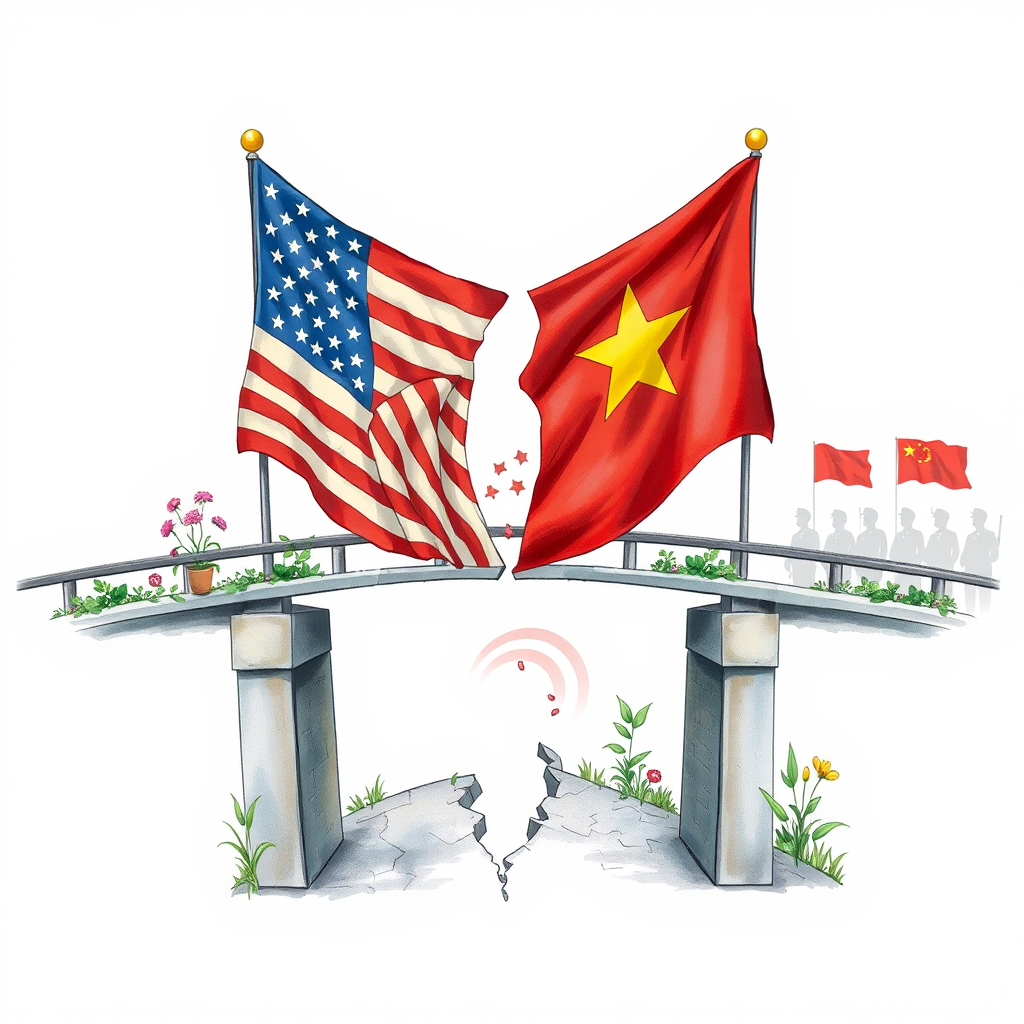Trump Cuts Aid, Jeopardizes US-Vietnam Reconciliation

The legacy of the Vietnam War continues to cast a long shadow over U.S.-Vietnam relations, recently strained by the Trump Administration’s unpredictable policies and funding cuts to programs designed to address the war’s enduring consequences. While official commemorations marked the 50th anniversary of the war’s end, behind the scenes, a pattern of inconsistent engagement and slashed funding threatened to undermine decades of reconciliation efforts and potentially push Vietnam closer to China.
Numerous war legacy programs, including a planned exhibit at the War Remnants Museum in Ho Chi Minh City intended to showcase American reconciliation efforts, fell victim to abrupt funding halts. The exhibit, backed by $2 million in USAID funding, was intended to demonstrate a commitment to addressing the past, but was stalled by an anonymous decision-maker in Washington, according to sources involved. This pattern extended to broader assistance programs aimed at clearing unexploded ordnance and supporting victims of Agent Orange, raising concerns about the U.S.’s commitment to fully addressing the war’s aftermath.
The administration’s actions weren’t limited to aid programs. A directive to senior diplomats, including Ambassador Marc Knapper, to avoid April 30th commemoration events, though partially circumvented by the attendance of the U.S. Consul General, signaled a lack of sensitivity towards a pivotal date in Vietnamese history. This, coupled with the imposition of tariffs and inconsistent trade policies, reinforced a perception within Vietnam that the U.S. is an unreliable partner.
The timing is particularly concerning given China’s growing influence in Southeast Asia. China’s participation in Vietnam’s military parade – a first – underscored the strengthening ties between the two nations, despite historical tensions. Experts warn that the U.S.’s erratic behavior risks alienating Vietnam and driving it further into China’s orbit, a strategic outcome that would undermine U.S. interests in the region.
The administration’s actions appear short-sighted. While acknowledging the complexities of the relationship and the need for a pragmatic foreign policy, it’s clear that consistent engagement and a genuine commitment to addressing the war’s legacy are crucial for building trust and fostering long-term stability. The U.S. risks squandering decades of progress and losing a valuable partner in a strategically important region.
The situation highlights a broader issue: the importance of symbolism and historical understanding in international relations. Vietnam deeply values symbolic gestures, and the presence of Ambassador Knapper – the son of a Vietnam veteran – at commemorative events held particular significance. The administration’s apparent disregard for these nuances demonstrates a lack of appreciation for the historical weight of the U.S.-Vietnam relationship.
Ultimately, the recent actions suggest a missed opportunity to solidify ties with a nation that, despite a painful past, has demonstrated a willingness to move forward. A consistent, empathetic, and forward-looking approach is essential to ensure that the legacy of the Vietnam War is one of reconciliation, cooperation, and mutual respect, rather than lingering distrust and strategic realignment.